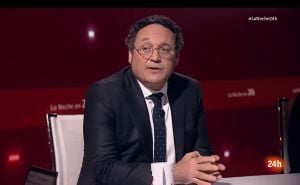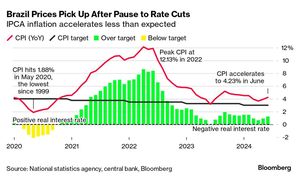On the third anniversary of Russia's invasion of Ukraine, significant events unfolded at the United Nations, depicting unexpected alignments between the United States and Russia. A brief resolution put forth by the US, calling for the "swift end to the war," was adopted by the UN Security Council without explicitly naming Russia as the aggressor. This resolution saw ten votes in favor, no votes against, and five abstentions, with Russia and the US surprisingly sharing the same stance, accompanied by China.
The backdrop to this diplomatic maneuvering was the earlier vote within the UN General Assembly, where the assembly supported Ukraine and the European Union's resolution condemning Russia's actions. Ninety-three countries endorsed this resolution, labeling Russia as the aggressor, and demanding the withdrawal of Russian troops from Ukraine, whereas 18 countries, including the US, Russia, Belarus, and North Korea, opposed it. The assembly's deliberations, particularly on this symbolic date, October 20, take on additional complexity as nations navigate conflicting interests and allegiances.
Ambassador Dorothy Shea of the US characterized the adopted resolution as a "simple and historic statement from the General Assembly, focused on moving forward," shifting the emphasis away from blame and toward achieving peace. According to Shea, the US’s intent was to generate strong commitments from involved parties aimed at terminating hostilities, emphasizing the need for lasting peace rather than mere temporary solutions. The nature of the resolution reflects the intricacies and competing narratives present within international diplomacy.
Contrasting the US's tactics is the vote on the Ukrainian resolution which, after substantial amendments driven largely by European powers, established clear references to Russia as the aggressor. This version garnered broad support from 93 nations. The support from European allies, particularly highlighted by the initiatives led by French President Emmanuel Macron, signals the challenging environment within which these countries must operate amid fluctuated US-Russia relations.
Macron's visit to Washington coincided with this turbulent period, where the French leader projected optimism about achieving peace—a truce, he suggested, might be reached within weeks. This perspective indicates Macron's dual role as both negotiator and mediator, seeking to refine the disconnected approaches of the US and EU allies. His comments during the meeting with Trump hinted at burgeoning collaboration, though they were overshadowed by significant remaining divisions among European nations.
Following the vote, Russia's UN Ambassador Vasily Nebenzia praised the US resolution, indicating the Kremlin’s appreciation for this shift away from stringent condemnation—a development echoing Putin's agenda. Despite this, Western nations, particularly those within NATO, expressed dismay at what they perceived as the erosion of unity within efforts to support Ukraine entirely. This dissension highlights the increasingly complex geopolitical chessboard at play.
During the G7 discussions, both Macron and Trump underscored the significance of US involvement, with Trump even asserting the need for European forces to assist peacekeeping efforts. He remarked, "We are getting closer to finding solutions" and emphasized the imperative of terminating this "abominable war." Conversely, the growing isolation of the European Union is palpable, exemplified by their marginalization within both the UN assembly deliberations and G7 discussions, leading to tensions among member states.
The recent votes and resolutions also suggest shifting allegiances, as Europe wrestles with its role and voice. Trump’s remarks signaling possible negotiations excluding Ukraine and European allies exemplify the tremendous influence of US foreign policy, reshaping traditional alliances and responses. Meanwhile, Washington's dual voting positions—one condemning Russia's actions and the other calling for peace without acknowledging aggression—add layers of complexity to how nations forge their responses to the Ukraine conflict.
Beyond diplomatic intrigue, the humanitarian toll of the war weighs heavily, with millions suffering amid the sustained hostilities. Reports estimate over 12 million individuals are now dependent on urgent humanitarian assistance, with many becoming displaced due to continued violence. These statistics amplify the moral imperative behind the political negotiations and decisions made on the global stage.
These developments unequivocally highlight the urgency for cohesive international action to address both the immediate crisis impact and the longer-term recovery needs of Ukraine. The burgeoning collaboration—or lack thereof—on the international stage will undoubtedly pave the way for either progress or continued fragmentation, undermining the hope for resolution.
Moving forward, the responses of various nations, particularly those pivotal to NATO and the EU, will continue to refine the contours of this global conflict. The diverging paths between US and European policy responses will be closely monitored, as the stakes remain exceptionally high, not only for Ukraine but for global stability.



